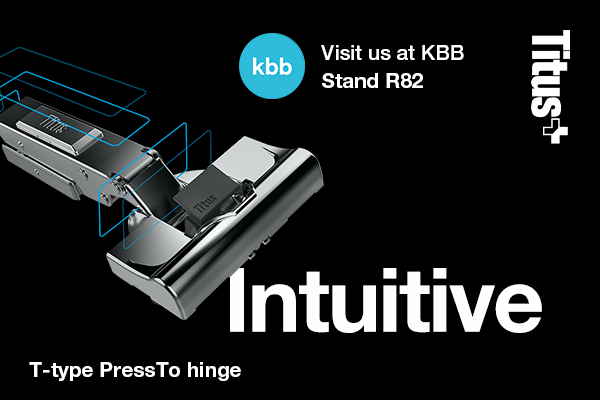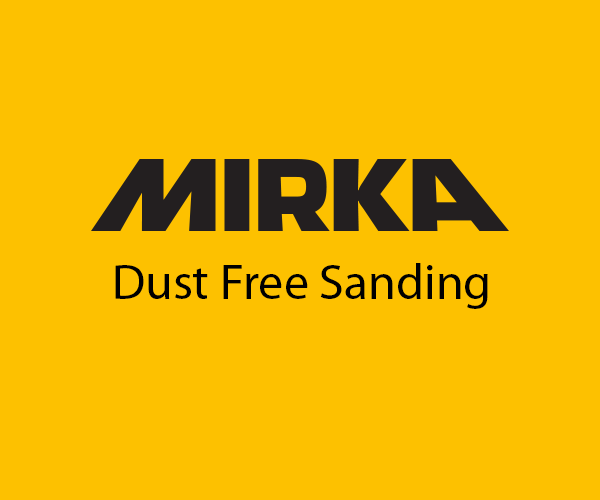Based in a converted loom manufacturing mill in Colne, Lancashire, Simpsons is renowned for its premium furniture lovingly crafted using largely traditional machinery. But due to frustrating bottlenecks and consistency
issues with its drilling operation, the company needed to find a dependable, and affordable solution.
Established over 40 years ago, Simpsons is a highly-respected and trusted furniture designer and manufacturer with family values running throughout the business. Whether it is beautifully bespoke kitchens, bedrooms, bathrooms, studies, AV rooms or staircases, every piece of Simpsons’ furniture is lovingly crafted in its historic Lancashire mill.

The foundation of the business is a creative, passionate and astute team, led by brothers Steve and Phil Simpson, who are dedicated to what they do and resourceful enough to get it done in a straight-forward manner, with no frills, no fuss and little ceremony. They are, however, consumately capable of delivering a premium product for its loyal and long-standing customer base in the Ribble Valley and beyond.


Simpsons’ base is not the typical modern box found on trading estates across the UK, rather the pair took on an historic former textile mill building in 1990 and made it fit-for-purpose featuring a practical u-shaped manufacuring space fronted by offices, and on the lower ground floor, a stunning showroom featuring 15 impressive room-sets.
Over the years, the Simpsons reputation has grown throughout Lancashire and further afield and it has become a prime source for those wanting beautifully-crafed bespoke furniture. The company’s kitchens and bedrooms adorn glossy magazines and together with their bathrooms and studies, are widely admired for their design, craftsmanship and sheer resourcefulness.

The business began in 1977 making small pine products in a shed and over the next ten years moved into pine furniture. And even though it was bread bins and toiler roll holders to start with, the ideaology was always to produce the best quality products they could – products that are humble can have finesse.
As so it was when the young business moved into pine furniture, not the typical Ducal-style pine furniture, Steve and Phil chose to reproduce antique-style furniture which had genuine aesthetic appeal. The couple went to the lengths of sourcing old stripping bath residue to finish their products with a warm and aged look – it was this kind of attention to detail that began to set Simpsons apart for the norm.
The business really kicked into gear in the early 1990s when Simpson’s started producing free-standing kitchen furniture and also making fitted kitchens, bathrooms and bedroom furniture for a more demanding clientele in the local area.

If the company was to describe its signature style, the current vogue for the classic painted look with a contemporary feel using high quality, timeless materials is one of its most successful looks. Today’s customers still mostly come from the local area, and are able to spend £50,000-plus on a project, which Simpson’s can manage from intital design ideas through to a complete interior renovation project.
Of course, there is no such thing as a typical £50k kitchen, more often than not, there is considerable bespoke work involved, and the quality which underpinned the business in the early days is even more important when the clients’ investment is more significant.
As the business evolved, Simpsons has carefully, and strategically unpgraded its production capability to meet its needs – its Altendorf saw has run for twenty-plus years and its second-hand Wadkin moulder has done 30-plus years. So whereas the finished product may appear incredibly sophisticated, the production floor is more of a large, tradtional workshop which full of straightfoward, unsophisticated classical machinery complemented with well-honed hand-crafting techniques.

Ross Whittam, the company’s production manager, is responsible for Simpsons’ industrious workshop with a team of long-serving skilled craftsmen and a raft and traditional machinery and equipment.
In recent years, as the company’s furniture has become more sophisticated featuring a greater use of built-in technology and functionality, finding new ways to adapt and improve the production process to keep delivering outstanding results has become more of a challenge.
Ross and the team continue to look for ways to improve capability in the company’s production process, and one bottleneck which was beginning to create knock-on issues was the drilling of the carcass panels and other components.

Not only had throughput long-since been an issue, the increasingly complex drilling patterns, accuracy and consistency had now exacerbated the problem.

Ross felt the company needed an entry-level CNC solution for fast, consistent drilling. Discussing it with Steve, they agreed to search for a simple drilling and grooving solution – but were not initially looking at a CNC option.
Steve contacted Carl O’Meara from the respected Oswestry machinery dealer, J & C O’Meara, who had previously supplied Simpsons with its Altendorf saw and other traditional machines.
“We could see the problem, that was easy,” explained Steve, “and we just wanted to get something cost-effective that could drill and groove the carcasses acccurately – doing this manually it could take up to an hour to drill, far too time consuming, and it was becoming a massive bottleneck for us.
“Talking with Carl, we initially wanted to look for a simple drilling machine, but he suggested we look at one of his new Sirius CNC boring machines with a router head and automatic tool changer.
“When we discovered that this machine could do what we needed in five minutes that would normally take an hour, we could see that this would be a very rational and worthwhile investment for the business.
A deciding factor for Simspons came after it had to create a substantial, highly detailed fitted library project for one of its clients. “It was lovely library project, but really I can’t think of the amount of bloody holes we drilled in that thing, it must have been thousands, literally thousands,” explained Steve. “We were pulling our hair out, I kept asking the guys day after day ‘is it done yet? The two of you, have been on this for three or four days, and it’s still not done,’ It was crazy!”
This realisation that it would have had it done in a morning if they owned a Sirius machine convinced Steve that getting this machine in was the right thing to do. The deal was done.
After a smooth installation, the training took an initial day with Ross quickly getting to get to grips with the basics of the machine. “The set-up was simple and we were easily up and running with support from Carl and his team,” explained Ross. “Also the TeamViewer function gave us direct access to experts in Turkey – where the machine is manufactured – who were able to see what were doing and offer practical advice in real time – we even used WhatsApp as well!
“After a week or so we had mastered what we needed to do an a regular basis and now we’re beginning to explore the full potential of the machine.”
Steve also made the point that the new machine has allowed the company’s designers to be less wary of some of the work they may have previously given a wide berth to because of its complexity and difficulty or simply too expensive to process using traditional techniques.
Now, a lot of the complicated and detailed work can readily be achieved meaning a much greater design freedom than was possible before.

The Sirius CNC 950M boring machine with a router head and automatic tool changer has a heavy duty construction – weighing almost 1.5 tons – and this is ideal because it allows the X and Y axis to move quickly without effort at speeds of up to 70m/min.
It has a generous 950mm working width meaning large panels can be loaded accurately being held firmly in place by the pneumatic gripper and moved through the machine easily thanks to the air floatation tables.
It also features a router head and automatic tool changer and is equipped with 10 vertical drills which drill from below to ensure the working surface and all holes are kept dust free whilst also having the benefit of increased accuracy as the drilling depth will always be correct despite any tolerances in the thickness of the work piece.
---------------------
Sirius 950 specification
X Axis: 250mm – unlimited
Y Axis: 80-950mm
Z Axis: 8-70mm
Panel movement: clamp
Vertical drills: 10
Horizontal drills: 6 (3 x 2)
Grooving saw diameter: 120mm
Router Kw/RPM: 5.5/18,000
---------------------
The machine is also equipped with horizontal drilling to all four sides and a grooving saw in the X axis.
The machine has a large, easy to use, industrial-based 17in colour windows based PC with both USB and remote file transfer.
With the addition of the router head, numerous repetitive and detailed tasks can be easily resolved such as grooving for solid backs on carcasses, routing out for cable management, pipes or skirtings, shaping for corner units for instance.
It comes fitted with a six position automatic tool changer to the router head which manifestly expands the list of possibilities for this machine.

For Simpsons, the additional functionality was a bonus: “The focus of what we needed sorting was the carcass drilling, the fact that it did all these other things as well was a bonus really,” explains Ross.
As an example, Simpsons is well known for its curved work with smooth corners, arches and a rounded details – the Sirius is being used to create highly accurate jigs to make this type of work more accessible and repeatable.
Previously, jobs like this were very time-consuming, made hand, or even subbed out to other companies. Now, with the Sirius, it’s a straightforward process.
Having introduced the new Sirius machine, Ross concluded: “With the new machine, we have improved manufacturing standards and consistency, reduced machining errors to practically zero, and our throughout is perfect from the point of view of drilling. Thanks to the Sirius machine, and Carl and his team, Simpson’s now has a far more professinal and reliable production system – we’re delighted!”









